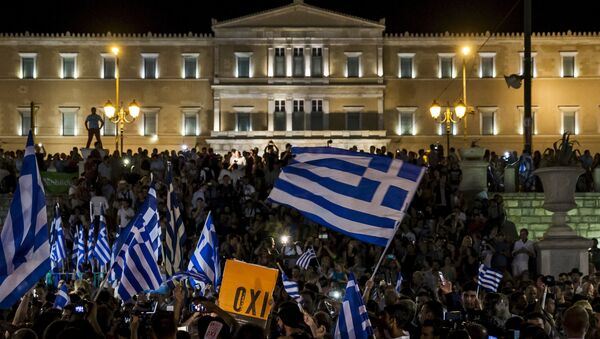"It is important to understand the deep meaning of No. It opposes the very undemocratic behavior of leaders of the Eurogroup, the European Commission or the European Parliament," Jacques Sapir, head of France's Center of Industrialization Research, told Sputnik.
Moreover, the analyst said the "undemocratic behavior" of Greece’s creditors has been the intention to discredit the new, leftist, Greek government.
"The fact that the ECB [European Central Bank] has organized the financial strangulation of Greek banks during the week of June 28 to July 5, causing a very understandable emotion in people, is a proof that the European institutions do not intend to continue negotiations with Alexis Tsipras but were seeking either his voluntary departure or his overthrow," Sapir said.
At the moment, the ECB should decide quickly to increase the ceiling of the emergency liquidity assistance. Otherwise, the situation will rapidly become critical in Greece and the negotiations "will lose all meaning," according to the expert. An agreement between Greece and creditors may be reached only if both parties really want it, Sapir underlines.
TRUE. Please note "as long there's willingness…". I am not sure of that. https://t.co/oihTl03dA6
— Jacques Sapir (@russeurope) July 5, 2015
The situation after the referendum is indeed critical, as the chances for Greece’s exit from the Eurozone and even the European Union soar.
Any new agreement would inevitably imply more burdens for the Greek people, according to the expert.
"If no agreement is reached, Greece may have to re-introduce the drachma, and the process of ‘de-integration’ from the Economic and Monetary Union may set up a sequence of events leading even to the exit of the country from the European Union," Skordas said.
The Greek government has been clashing for months with Brussels and its major money lenders in Paris and Berlin, who want Athens to increase taxes and cut welfare spending.



